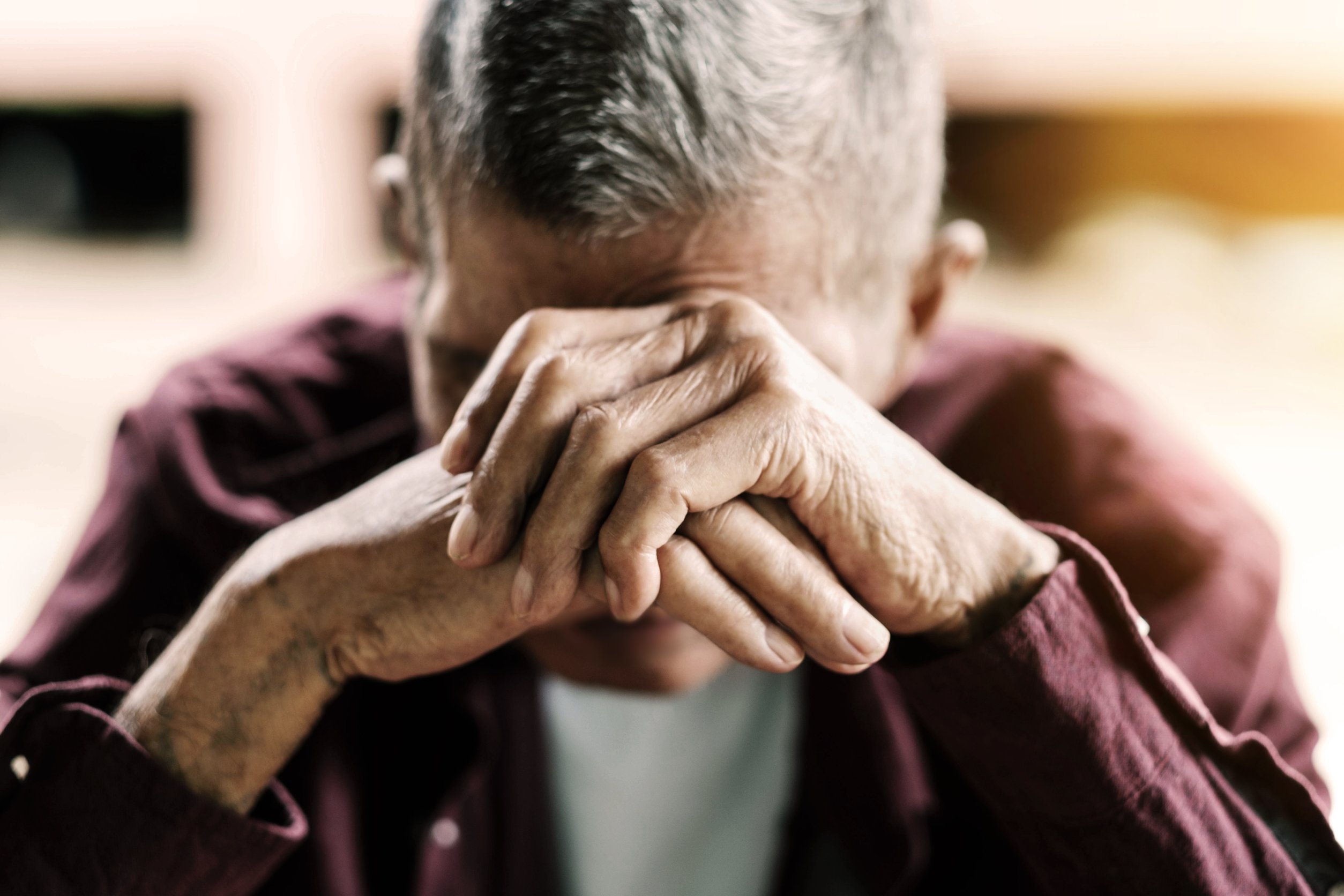
16 Aug Panic Disorder In Seniors – The Scary Reality
PANIC DISORDER IN SENIORS – The Scary Reality
Panic disorder can be an incredibly disabling condition, and it’s even more challenging to live with when you’re older than 65. While younger people may have the energy to visit their doctor on multiple occasions or take several medications, older adults may not have the resources or health to do so. What do you need to know if you or your loved one has panic disorder as a senior?
An estimated 1% of the population has panic disorder, which makes it an incredibly common condition—but it’s also often overlooked or improperly diagnosed. That’s because there are several different varieties of panic disorder, which can have very different triggers and symptoms, including social anxiety disorder and agoraphobia (fear of being in public places).
Is panic disorder more common in seniors? How can you spot the signs of panic disorder in seniors? What help is available to those with senior-aged loved ones suffering from panic disorder? In this article, we’ll answer these questions and explain what seniors can do to help themselves and their loved ones find the right treatment option, as well as dispel some myths surrounding senior-aged individuals and anxiety disorders.
What is a panic attack?
A panic attack is a sudden, intense feeling of fear or anxiety. It can come on without warning and can be very debilitating. Symptoms of a panic attack include heart palpitations, sweating, shortness of breath, chest pain, and dizziness. If you experience any of these symptoms, it’s essential to seek medical help immediately.
What causes panic attacks in seniors?
There are many potential causes of panic attacks in seniors. Some seniors may have a history of anxiety or other mental health conditions that can contribute to the development of the panic disorder. Additionally, some physical health conditions can cause or worsen symptoms of panic disorder. These include heart conditions, thyroid problems, and sleep disorders. In some cases, medications may also play a role in developing panic disorders. Stressful life events or changes in routine can trigger panic attack disorder in seniors.
How are they diagnosed?
A geriatric psychiatrist or another mental health professional will conduct a thorough evaluation to determine whether an older adult is experiencing the panic disorder. This assessment may include a review of the person’s medical history, a physical examination, psychological testing, and laboratory tests. The doctor may also request information from family members, friends, caregivers, and others who have observed the person in order to make a diagnosis.
What are some coping mechanisms?
As we age, our bodies undergo changes that can increase the risk of developing panic disorder. To help offset this, it’s important to have coping mechanisms in place. Some helpful coping mechanisms include exercising regularly, keeping your body healthy by getting enough sleep, avoiding drugs or alcohol, maintaining a healthy weight, and not letting yourself get too hungry or too full.
These steps may seem like common sense, but they can really make a difference when your body is going through change. Another key strategy is to be mindful of daily stressors and avoid things causing anxiety, such as loud noises or strong smells.
Medication treatment options for Panic Disorder
There are a variety of medications that can be used to treat panic disorder, depending on the severity of the condition. Benzodiazepines are often prescribed for short-term relief, while SSRIs are usually recommended for long-term treatment. Other options include tricyclic antidepressants, MAOIs, beta-blockers, and antipsychotics. The best course of treatment will be determined by a mental health professional. Click Here for more information on medication options.
Non-medication treatments for Panic Disorder
Several non-medication treatments can be effective in managing panic disorder. These include cognitive-behavioral therapy, exposure therapy, and relaxation techniques. Medication may also be an option, but working with a doctor to find the right medication and dosage is essential. It is crucial for seniors who have panic disorder to seek help. This condition can lead to other health problems such as depression or heart disease if left untreated. Considering your living situation can also assist in managing your panic disorder but also having medical professionals available consistently to assist you. A senior independent living facility can provide a more structured setting with regularly scheduled medical professional visits. To learn more about The Residences at Zon Beachside and what a Senior Independent Living facility can provide Click Here.
Final Thoughts on the Scary Reality of Panic Disorders in Seniors
While it can be expected for seniors to experience some anxiety, it’s essential to be on the lookout for signs of panic disorder. Talk to their doctor if you think your senior loved one may be struggling with panic disorder. Treatments available can help manage the symptoms and improve the quality of life.



